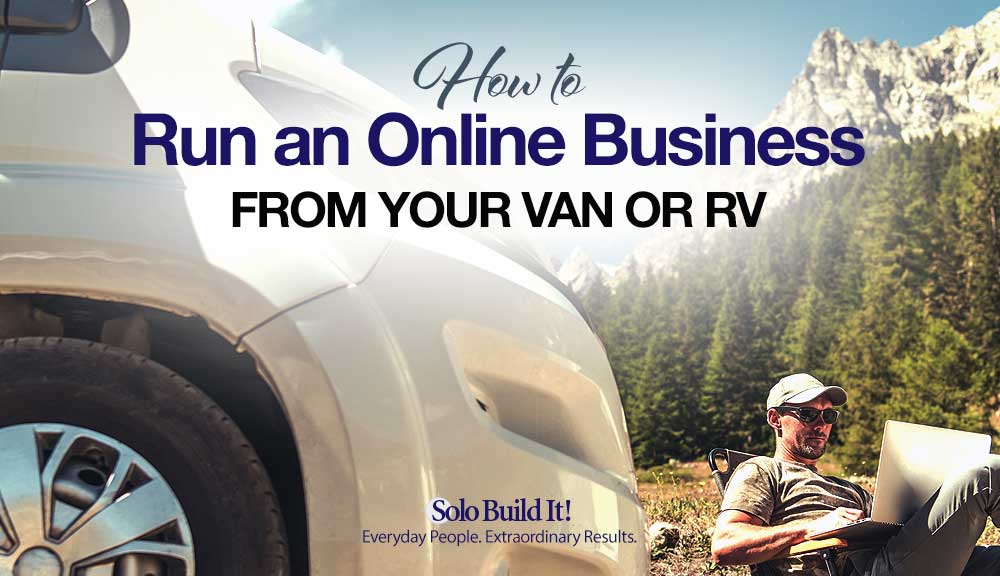
Six months ago I hit the road in my Mercedes Sprinter campervan and had to learn how to run an online business from my van RV. I’ve travelled over 3000 kilometers and reached the paradise that is Far North Queensland, Australia.
I’m not one of the grey nomads (though getting close) or retired yet, so how did I afford to just take off and embrace the RV life? I was one of the lucky ones. As we know from the recent film “Nomadland,” not everyone does it through choice.
I was able to become a digital nomad and work from anywhere because I run an online business from my RV.
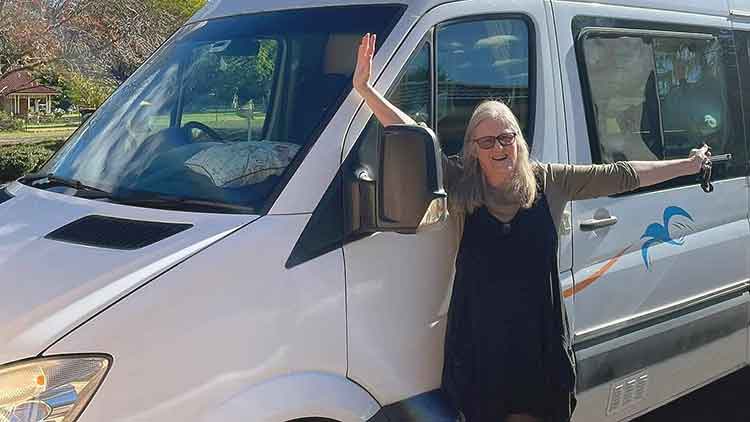
In this article I will share what I’ve learned about working remotely and running a business on the road. For example, you will:
- Learn what types of businesses are best suited for the RV lifestyle.
- Pick up hands-on tips on getting set up and how to work while travelling in your camper.
- Meet fellow freedom lovers who’ve already built businesses that allow them to work from their RV and fulfill their travel dreams.
- Hear what platform I am using to build and run my location independent business and the top 3 reasons why I believe that it’s the best product out there!
- Get a free Time and Budget Planner to help you stay organized while running a business from your RV.
Benefits of Running An Online Business From Your Van or RV
I think we all know why we love travelling. It excites us. We learn about the world and we meet new people. We get a sense of personal freedom and can see our lives more objectively. Surrounding ourselves with beauty and nature can improve our health. Exploring can help unleash our creativity too.

I have certainly felt more inspired since I started travelling. I think we often have our best ideas when we get away from our familiar routines. It teaches us flexibility and how to think more creatively.
Emily from Lene Media & Design, who runs her business from her van, says:
“I love that I get to work from anywhere! That sounds cliché but it helps with business. Very often, clients want to know if I can come see their store or even meet for lunch. I can say yes no matter where they’re located. This gives me a personal relationship with my clients and helps me see new places.”
More people than ever before are hitting the road to become #DigitalNomads. 🙌
Their mobile campervan or RV serves as their home, transport vehicle, AND office. 💻🍳🚐🏡✨
What do YOU think the best name for Location Independent Business Owners is? 👇
— Solo Build It! (SBI!) (@SoloBuildIt) November 11, 2021
What Business Can I Start From My Van or RV?
There are many types of online businesses you can run while living your dream van life.
It’s important to have a business that you love so that you have the passion and motivation to work on it. Otherwise, the distractions and pleasures of travel will definitely get the upper hand.
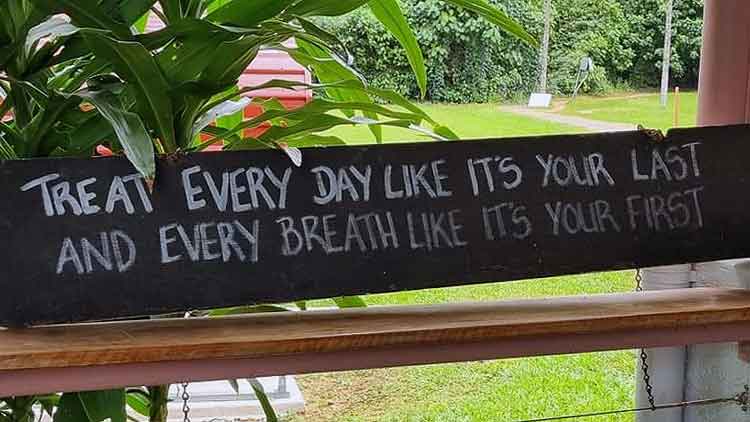
If you’re planning to run an online business from your van or RV, the best types are those that don’t involve you having to provide a service or sell products that you have to ship yourself.
Having said that, there are plenty of freelance jobs you can do online, such as teaching English or doing consulting work. You can find all sorts of freelance work online via sites such as Upwork and Fiverr. To me they are too much like 9 – 5 jobs and not flexible enough. I don’t want to have to be on a Zoom call at a certain time of the day or night, or work to someone else’s deadline. But freelancing might be good while you’re building up a more passive income.
Some of the more obvious business ideas are related to travel. We’ve all seen many blogs that people make about their travels. If you’re a great photographer and enjoy making videos, take a look at these six photography business ideas for inspiration.
This field is getting quite competitive, though, so you’ll want to find a unique niche that no one else has covered yet. Everything About RVing is an example of a site about the RV experience itself.
I suggest narrowing it down and making it more targeted so that it’s manageable and not too competitive. So instead of just RVing, make it about exploring vineyards from your RV or canoeing with your RV. Instead of RVing in Europe, try RVing in northern Spain.
Or find a related activity that you do while traveling, like for example Tropical Snorkeling.
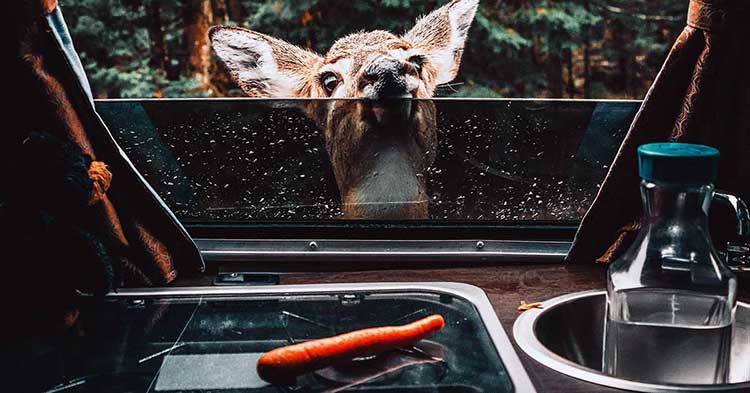
Another example is Hiking for Her, which has narrowed down the niche by making it about hiking for women instead of just hiking.
But your niche can be about anything that interests you. It’s best to choose a topic that you’re passionate about. I’ll explain how to make money from your passion below.
My online business income is now totally passive, and I only work when I feel like it. My niche is in “Art Deco.” Yours can be anything that you’re knowledgeable about. I’ve seen businesses based around everything from cement to volcanoes. So how on earth can you make money from topics like these, you ask?
The answer is “content marketing.”
You build traffic (visitors to your site or blog) by sharing your expertise via content that people want to read. (Or listen to, or watch.) You engage people with your great articles, podcasts, videos etc. and then you monetize that traffic, which you have pre-sold with your useful information.
Best Ways of Making Money While RVing
Once you have some website pages or blog posts published (and this is really easy using the system I use at Solo Build It!), you can start adding your monetization mix. I say “mix” because it’s always a good idea to diversify your money-making methods.
I have a few eBooks and some print-on-demand greetings cards, but I mostly use a variety of affiliate marketing products.
For me, affiliate marketing is so worth it for earning retirement income.
Creating your own products is the most profitable route to making money out of your content. If you create and sell digital products that don’t need to be shipped, even better. Then you can automate the entire process.
Some ideas of products you don’t have to ship include:
eBooks
Once you have some website content, you can convert it into a book to sell online through Amazon’s KDP Publishing. They provide all the instructions for formatting, so it’s pretty straightforward.
Digital Courses
If you have a skill you can teach, instead of teaching it live online, why not create some video courses to sell.
If, however, it asks for my email so I can receive a mini-booklet with tips on watercolour paintings, I may well do that. If I like those tips and the teacher, I might then visit the website. If it’s full of wonderful content, lessons and paintings I like, maybe I’ll buy a cheap course for $30. Finally, if I’ve enjoyed that one, I might consider spending that $300 on the advanced course.
You see from that little example how the sales funnel works. You warm folks up by giving them something for nothing so they can get to know you and trust you. A well-written, content-rich website or blog is one of the ingredients in that process to build up a relationship with your customers.
Digital Products
Other ideas of products you don’t have to ship are print-on-demand items from companies such as Zazzle.
If you have a photo or a design, you can upload it to Zazzle and sell your design through them on a huge range of products such as mugs, aprons, jigsaws, cards, calendars, prints, canvases and many more.
They do all the hard work and shipping and you just sit back and collect your income and some referrals.
Affiliate Products
Affiliate marketing is the promotion of someone else’s products to earn commissions on sales you generate through your affiliate tracking links. The easiest way to do this is to join a large program such as Amazon or Etsy, which have many products that your audience could benefit from or would like to have.
You recommend products that are related to your content, and earn a commission when someone buys it using the link you provide. The beauty of being an Amazon or Etsy affiliate is that you earn a commission even if people purchase products other than the one you were promoting.
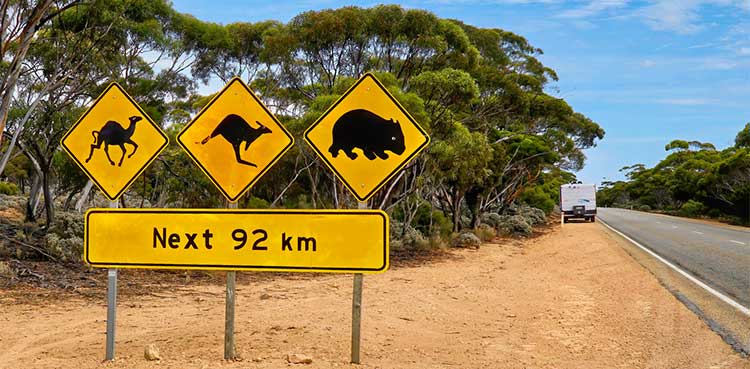
Think about some high-value products you could recommend related to your chosen topic. The higher the value, the more you’ll earn. Even small commissions will soon add up to a decent income once you build enough traffic to your site or blog.
There are many affiliate programs that give you access to a wide range of brands from which to choose, so you can be sure you’ll find a related product you can promote. Some examples are Share a Sale, AWIN and Impact Radius.
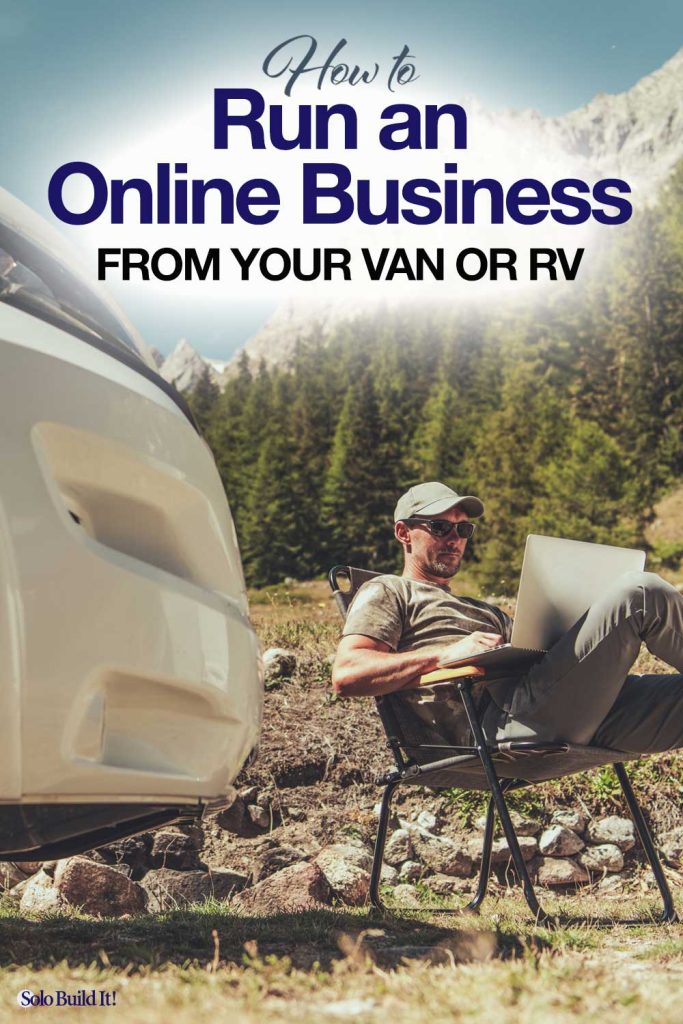
How to Start and Run An Online Business From Your Van Or RV So You Can Travel Full Time
Running vs. Starting a Business
Although there are people who have developed their business idea from their RV or van, you probably have a much better chance of making sure it will work and you can actually run an online business from your van or RV if you’ve started before you hit the road.
Emily says:
“I started my online business before traveling. I wanted to make sure all the logistics were in place before hitting the road. Additionally, I wanted to make sure it was going to provide enough income for me to travel full time.”
It can take a while to build up a business, and often that is the most work intensive part of the process. If you need a certain income to enable you to travel, you’ll want to know you’ve achieved that before taking the leap.
You’ll also want to enjoy your travels, which is more difficult if you’re spending the majority of your time building up an income.
If you can create a business like mine, you’ll have the freedom to work when you want, and take time off when you please. In order to do that, you need a business that brings in a passive income and continues to grow even when you’re not working on it.
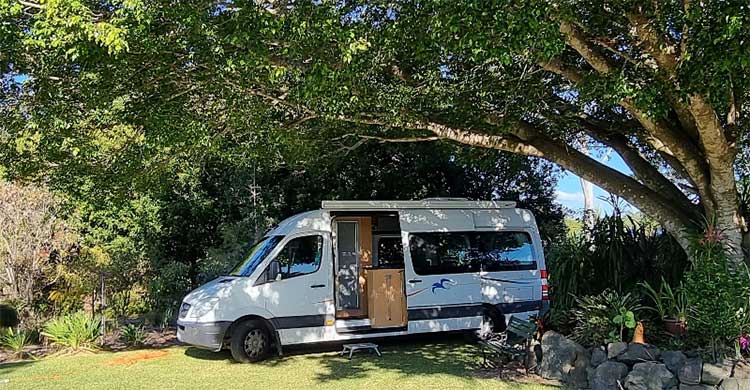
Pitfalls to Avoid in Your RV-Based Business
Try to work smart, not hard. Don’t spend all your time on tasks you could outsource to someone else.
Don’t over-commit yourself to meetings and calls via Zoom, which require you to be online at certain times.
Avoid creating needless deadlines for yourself, or weighing yourself down with products that need to be sold at markets or shipped. If you do create your own physical products, make sure they’re small and easily shippable.
Don’t work full-time when you’re living the van life. After all, the whole point is to see the places you visit and have time to chat with all the fascinating people you meet.
You also have to factor in the time it takes to get from A to B, set up camp, and do all those things that always take a little longer than they do at home, like cooking and washing your clothes.
How to Set Up Your Van or RV for Online Business
Getting reliable Internet is one of the main challenges you may experience on the road when running an online business from your RV or van.
Emily says:
“The biggest challenge I have running a business from an RV is finding reliable Internet. Before I book my next spot I read every review I can find to get an idea of how good or bad the Internet is. I’ve even had to find a new campground after checking in because the Internet was slower than expected.”
In Australia I didn’t want to rely on campsite Wi-Fi, which I knew was often either non-existent or only available near the reception area. So I got myself a tablet with a keyboard with built-in 4G/5G cell network coverage. Find out which network has the best coverage where you’ll be travelling and go for that.
Power is another challenge if you’re on a tight budget or want to travel to remote areas. I’ll admit my few attempts at going without power didn’t last long even though I have a solar panel on the roof and a mini panel for charging phones.
The days I had booked a site without power I was put under a large shade tree, and the weather wasn’t very sunny either. There was power in the kitchen, but sitting for hours on an uncomfortable kitchen bench to be able to plug in my tablet and phone was not my idea of fun.
So learn how long your devices can last without charging and how long they take to charge.
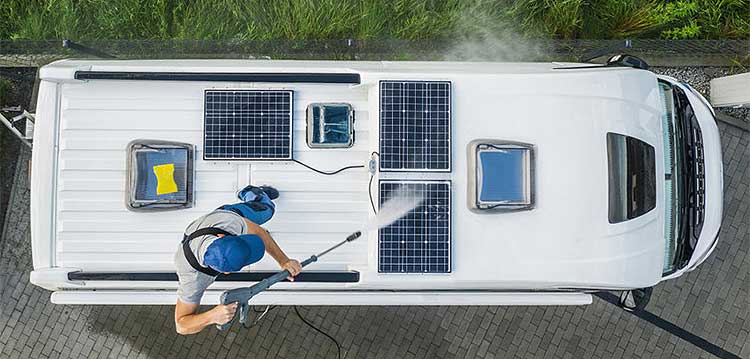
Technomadia.com has some good articles about setting up your technology while traveling. It’s also a very good example of how to do an affiliate marketing website.
Another thing you need to work out is your workspace. Do you have a comfortable area in your van to sit? This is particularly difficult if you’re travelling with other people or children. Think about where you’ll all be on a rainy day, for example, and make sure there’s enough comfortable seating.

My Top 3 Reasons Why I Chose Solo Build It! to Create my Online Business
1 – The Action Guide
As someone who didn’t know anything about building websites or running an online business, the Solo Build It! Action Guide was invaluable to getting my business up and running.
It taught me, step by step, everything I know about content marketing and growing a passive income. It comes included in every website hosting package from Solo Build It!. It’s like a free university course, like getting an online MBA for a fraction of what you’d pay at college.
2 – Cost
Ken Evoy, Solo Build It!’s founder and CEO, has always kept the price of this online business building program low so that it is accessible to everyone.
In addition, because everything you need is included, from state of the art keyword research tools to site design templates, you don’t have to pay for expensive add ons.
3 – User Friendly
Even for someone with no technical sense like me, it was straightforward to create my website. You don’t need to learn anything complicated. If you can use a Word document, you can use Solo Build It!.
Eight years on, and I’m still so happy I chose Solo Build It!. I’ve made a lot of wonderful connections all over the world through the forums too. It’s like being part of a big family of online business owners.
Some Final Tips for Living and Working on the Road
As we heard from Emily above, there’s a lot more planning required if you’re trying to run an online business from your van or RV.
It’s difficult to be spontaneous and just roll up to the nearest campsite when you want to stop. If you’re relying on power and/or Internet access, you’ll need to research RV campsites and book ahead.
Plan your route and how much travelling you want to do each day. I recommend only moving on every few days to a week to reduce the work needed to pack up and set up again. It also reduces the time spent on researching campsites.
Create a timesheet to figure out how much time you’ll spend working, driving, sightseeing, shopping, cooking and so on. You may be surprised at how long it can take to set up camp, and pack up again in the morning. Do a trial run if needed.
Then, work out a budget for how much you can spend on accommodations, fuel, food etc. The longer you stay in each place, the less you’ll spend on fuel. Research the costs of campsites in the areas you want to visit. Campsites are usually much more expensive in popular tourist areas and in coastal areas, so factor that in when you plan your route.
If you want to free camp, you’ll find that your set up costs for technology will be more expensive if you want to run an online business from your van or RV, but you’ll save on accommodation. I decided it was worth paying for powered sites to avoid the hassle of trying to keep my equipment charged up.
Here are a couple of final tips from Emily:
“First, do something that you enjoy doing. When you run an online business from your van or RV, you end up working after long days of travel and sometimes as soon as you arrive somewhere you want to explore. You don’t want to have to force yourself to work.
Second, just go! As soon as you have your business structured properly and you have enough clients to pay for food and accommodations, it’s time to go. If you wait until your business is in a perfect place you may never leave.”
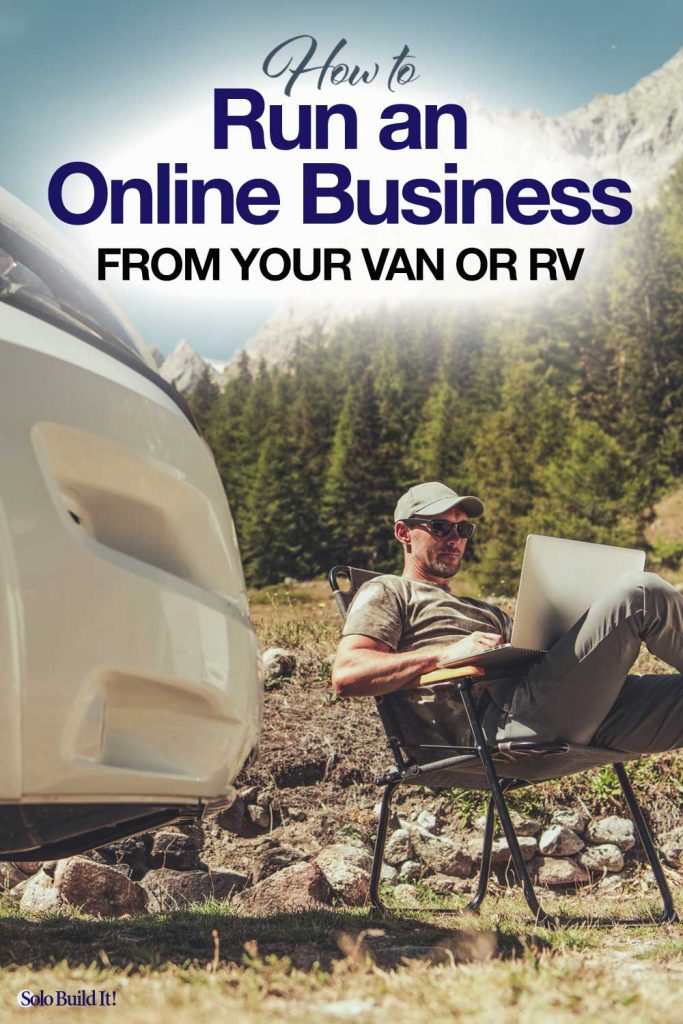
Latest posts by Lesley Postle (see all)
- Pros and Cons of Using Zazzle: A Seller’s Guide to Success - May 23, 2024
- Working From Home With Chronic Illness: 10 Proven Tips - August 25, 2022
- How I Thrived When Forced to Quit My Job Due to Chronic Illness - August 4, 2022



